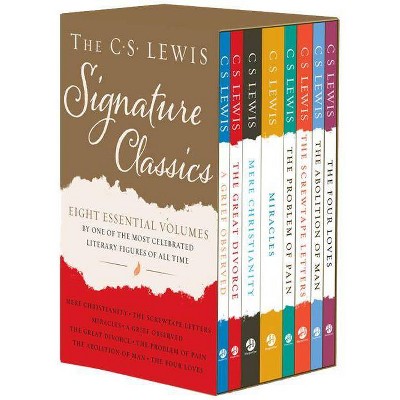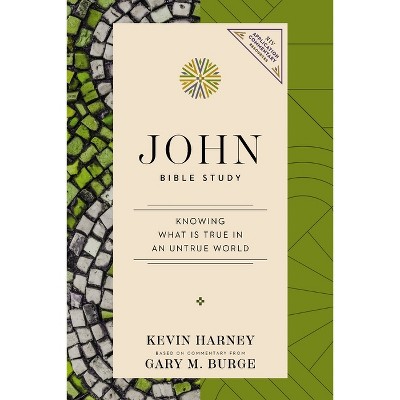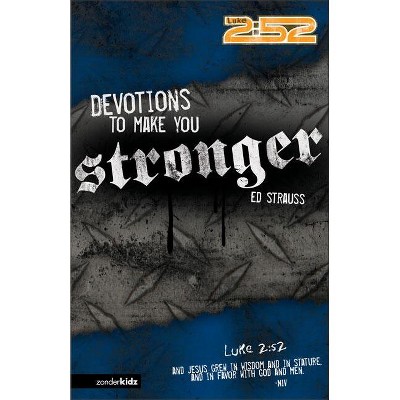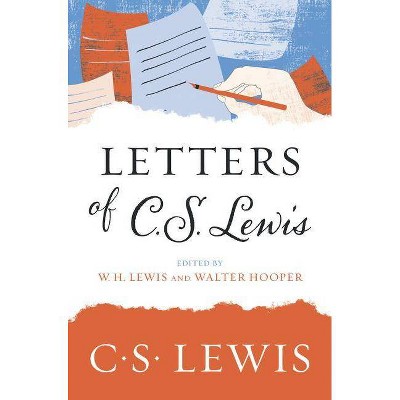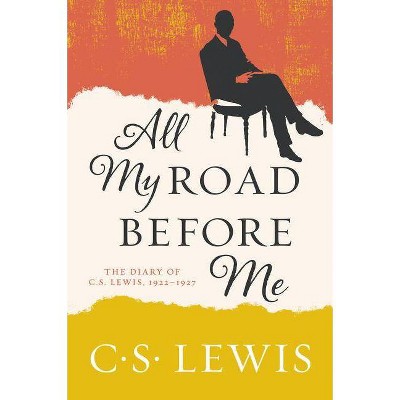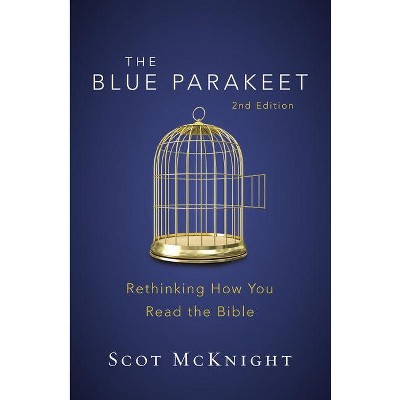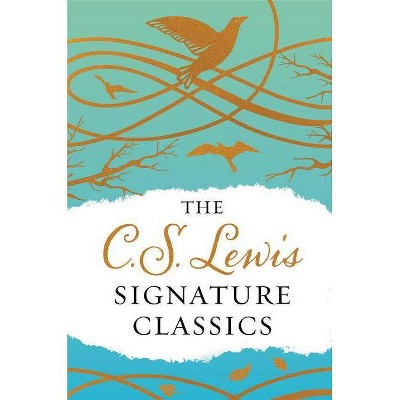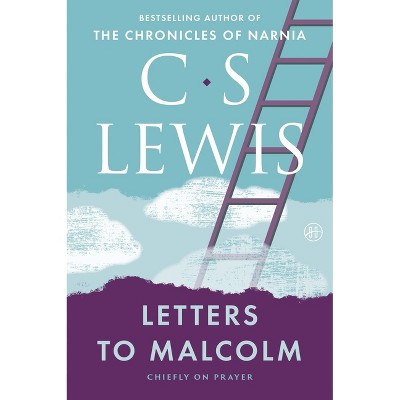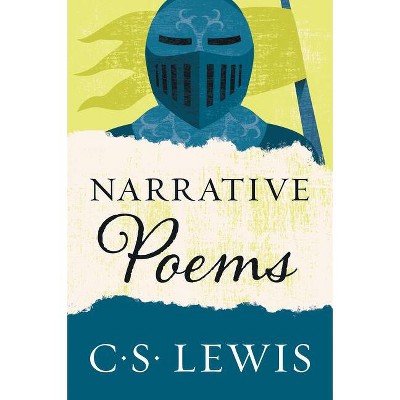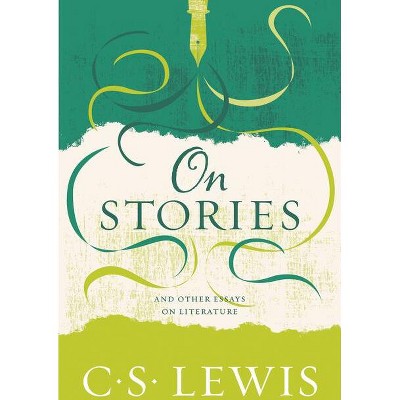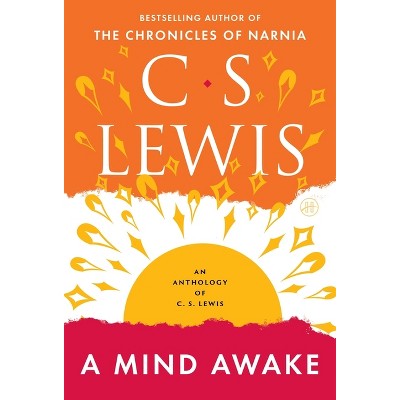Sponsored

The Personal Heresy - by C S Lewis & E M W Tillyard (Paperback)
In Stock
Sponsored
About this item
Highlights
- A repackaged edition of the revered author's set of dueling critical essays with fellow scholar E. M. W. Tillyard in which they debate the role of an author's biography in the critical appraisal of literature.C.
- Author(s): C S Lewis & E M W Tillyard
- 192 Pages
- Religion + Beliefs, Spirituality
Description
About the Book
"A repackaged edition of the revered author's set of dueling critical essays with fellow scholar E. M. W. Tillyard in which they debate the role of an author's biography in the critical appraisal of literature. C. S. Lewis--the great British writer, scholar, lay theologian, broadcaster, Christian apologist, and bestselling author of Mere Christianity, The Screwtape Letters, The Great Divorce, The Chronicles of Narnia, and many other beloved classics--challenges fellow scholar E. M. W. Tillyard on one of the most intriguing questions involving writers and writing. Is a work of imaginative literature primarily influenced by the author or by the subject matter? Lewis argues that the author's own personality and biography has little to no impact on the writing, while Tillyard contends the opposite: that the author's own imagination and story have an indelible influence on a piece of work. Clever, erudite, and enlightening, their debate may not definitively settle the issue, but it does offer invaluable insight and intellectual delight for all dedicated readers"--Book Synopsis
A repackaged edition of the revered author's set of dueling critical essays with fellow scholar E. M. W. Tillyard in which they debate the role of an author's biography in the critical appraisal of literature.
C. S. Lewis--the great British writer, scholar, lay theologian, broadcaster, Christian apologist, and bestselling author of Mere Christianity, The Screwtape Letters, The Great Divorce, The Chronicles of Narnia, and many other beloved classics--challenges fellow scholar E. M. W. Tillyard on one of the most intriguing questions involving writers and writing. Is a work of imaginative literature primarily influenced by the author or by the subject matter?
Lewis argues that the author's own personality and biography has little to no impact on the writing, while Tillyard contends the opposite: that the author's own imagination and story have an indelible influence on a piece of work. Clever, erudite, and enlightening, their debate may not definitively settle the issue, but it does offer invaluable insight and intellectual delight for all dedicated readers.
From the Back Cover
In The Personal Heresy, C. S. Lewis challenges fellow scholar E. M. W. Tillyard on one of the most intriguing questions involving writers and writing. Is a work of imaginative literature primarily influenced by the author or by the subject matter?
Lewis argues that the author's own personality and biography have little to no impact on the writing, while Tillyard contends the opposite: that the author's own imagination and story have an indelible influence on a piece of work. A rare glimpse into the thinking process of one of the greatest writers of the twentieth century, The Personal Heresy offers invaluable insight and intellectual delight for all dedicated readers.
Shipping details
Return details
Frequently bought together



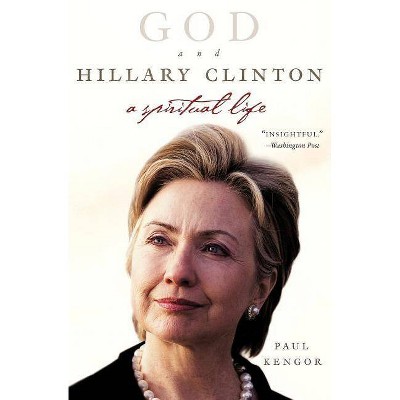
Guests also viewed
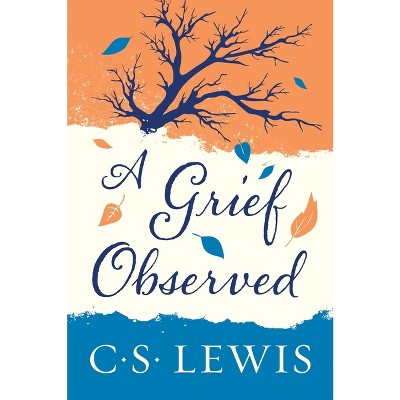
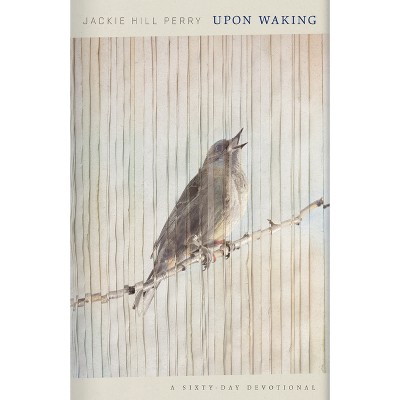
Discover more options
